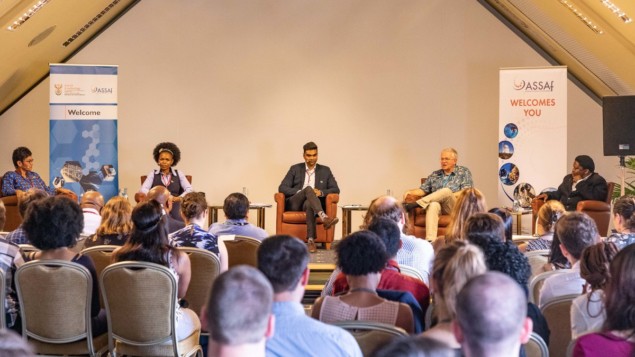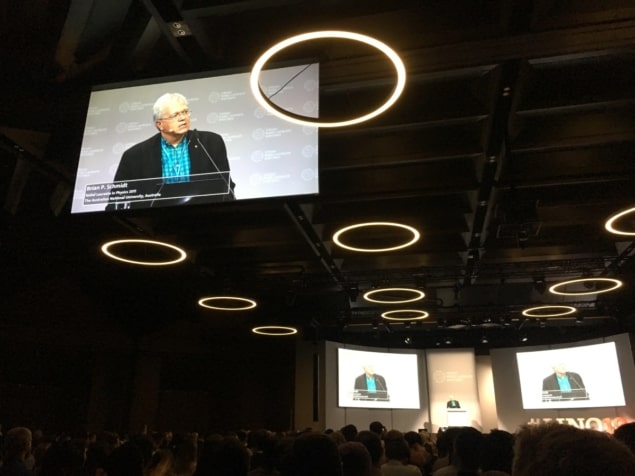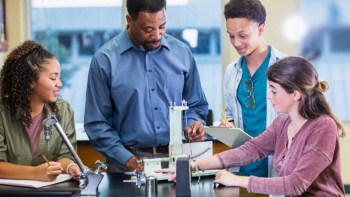
Herzliche Grüße from Lindau! With a packed program, it already seems a while since Sunday afternoon, when young scientists and laureates escaped the 35 °C temperatures for the air-conditioned Inselhalle and the official opening. There, the opening keynote by Brian Schmidt, 2011 Nobel laureate and now Vice Chancellor of the Australian National University in Canberra, was a big hit.

Schmidt has a knack for clear, engaging communication, making his rallying call to young scientists all the more persuasive. “We live in a time where use of Earth’s resources is not sustainable over the current human lifetime,” he said, highlighting the challenges presented by the climate crisis. “But there is hope, and hope is here is this room.”
The cosmologist implored early career scientists to reach out to politicians and wider society. Within academia, he called on them to think big, develop the technological solutions to society’s problems, support an open scientific community and tackle their own subconscious biases.
I briefly chatted to Schmidt in a coffee break yesterday morning. It’s no mean feat – in Lindau, when laureates stop moving, a halo of excited young scientists quickly forms around them. He told me, quite sincerely, “these issues are close to my heart”.
Earlier that morning, I joined young scientists at a Science Breakfast event, Reaching for the Stars, where Schmidt was a guest panellist. It was organized by a South African delegation; this year’s nominated host country at Lindau. The title is a nod to the blossoming astronomy community there, largely a consequence of the country’s co-hosting of the Square Kilometre Array (SKA) radio telescope.
The discussion focused on the country’s ambitions for physics, in which young scientists will play an important role. As moderator Beverley Damonse from South Africa’s National Research Foundation explained, there is strong political will to invest in and grow research, technology and innovation within the country – and the government recently released a policy document detailing planned initiatives. According to Damonse, these initiatives are seen as a way to tackle problems faced by South Africa, which include a struggling economy, high unemployment and widespread poverty.
Part of the puzzle for emerging research nations is attracting young talent. Responding to a question from a young scientist from Thailand, panellists emphatically extolled the benefits of outreach to achieve this. One was Buyisiwe Sondezi, senior lecturer at the University of Johannesburg and the first woman in Africa to gain a PhD in the experimental study of highly correlated matter. One approach she uses is to go into high schools – where she speaks to students about her work and maintains contact up to school-leaving age. “I found that strategy working, although it takes a bit longer,” she commented. “You have to be patient for a result.”

Lindau 2019: the chance to pick a Nobel laureate’s brain
Country-wide, it would seem such efforts are working. There has already been a marked increase in postgraduate students, women included, reported Damonse. In the audience, Master’s student Tanita Ramburuth-Hurt from the University of Witwatersrand in Johannesburg is one of them. During the session Ramburuth-Hurt asked: “Where does the panel expect to see South Africa on the global scientific stage in the next five to ten years?”
Sondezi replied that that are good reasons for optimism, citing multiple initiatives in universities to grow research and government support. “The future’s very bright for the country,” she told the audience.



